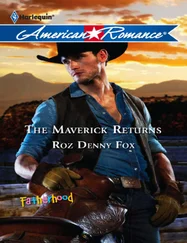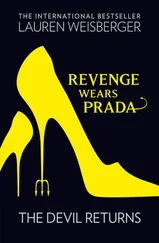The only part of the trip Geraci had to spend actually inside the casket was the loading and unloading. Onboard, in a car with four other caskets and a crated-up piano, he was able to get out, read, relax, play cards with the two men watching him, and take them for everything they had. He felt sorry for them. He had a place to sleep and they didn’t. He suggested they take the dead people out of some of the other caskets, but they wouldn’t. As a gesture of goodwill, he offered them their money back, and of course they refused. Good Cleveland guys, all the way around.
As the train pulled into Tucson, he told the men good-bye and shut the lid on himself. Two days sleeping in this thing, and the velvet pillow stank. The next face he’d see would either be Charlotte ’s, as he’d been told, or that of some ugly fucker who was about to kill him.
He lay in the dark, utterly still. Soon he heard men speaking Spanish and felt hands grasping the handles and lifting. There was a lot of jostling and banging into walls until Geraci heard someone say “Look out” in English and a moment later he hit the ground, hard. It knocked the wind out of him. The Mexicans exploded in laughter. Geraci put his hands over his mouth and tried to control the little wheezing squeals his lungs made as they fought with his spasmed muscles to fill. So maybe the next face he saw wouldn’t be Charlotte’s or a killer’s.
The men kept laughing and cussed at one another in a mix of English and Spanish. They picked up the casket. Geraci’s breathing returned to something close to normal. He’d banged his head, too, he only then realized. Soon they slid him into what was probably another hearse.
Michael Corleone had sent word that he didn’t blame Geraci for the crash and that after all of Geraci’s hard work these past months, he’d more than earned a few quiet months in the desert with his family. He’d been assured that things were going well, that no one was coming after him. No one was looking for him. Smuggling him out of Cleveland like this had just been a precaution, something to ward off cops and lucky guessers.
Probably all that was true. But it was also just the kind of reassurance a guy heard right before he got clipped.
Still, though Geraci would probably never like Michael Corleone, he did admire him. He had faith in him. Michael would save Nick Geraci, if for no other reason than that he needed him. He needed his loyalty, his ability to make money, his smarts. Michael wanted to transform an organization made up of violent peasant-criminals into a corporation that could take its place in the greatest legal gambling scam ever invented-the New York Stock Exchange. If he was going to succeed, he certainly couldn’t afford to lose a man like Geraci. In the scheme of things, Geraci knew, he was just some mook from Cleveland, a striver who took his lumps, worked hard, went to night school, and had a little success as a small-time attorney and businessman. But compared to most of the guys in this business, Nick Geraci was Albert Einstein.
Even so, Geraci had made mistakes. He should have stood up to Falcone and refused to fly in such weather. He shouldn’t have said he thought the plane had been sabotaged when he’d really had no idea. Crashing: also bad. He certainly shouldn’t have swum away from the wreck as if he were guilty of something. His mistakes had narrowed his options. He had no choice but to play out this hand.
This would be a very elaborate way to kill him, though that hardly ruled it out. He’d heard of more elaborate. He’d participated in more elaborate.
When he’d been forced to kill Tessio, Geraci couldn’t have been more angry at Michael Corleone. But from the moment he’d walked away from Tessio’s open grave site until that trip from the train to wherever he was really going, Geraci truly hadn’t given it another thought.
The hearse stopped. He was unloaded by men who didn’t say a word, which did not seem like a good sign.
Geraci’s head throbbed. He could hardly breathe. It’s not as if caskets have airholes. On the way here, he’d spent maybe one tenth this much time with the lid down. He was going to die choking on his own funk. They’d come to whack him, and he’d already have suffocated. Still, he’d do as he was told. He’d stay inside with the lid closed until Charlotte came to get him.
The men walked him across a cement floor and set him down on something. Definitely cement. This could very well be the back room of the Di Nardo Brothers Funeral Parlor. The night he killed Tessio, that crematory where they took the heads, it had a cement floor, didn’t it?
This could also be a warehouse. A meat locker. Somebody’s two-car garage. Anything.
He heard a door open. A person’s rubber-soled shoes squeaked as they drew near him. A polished cement floor. He held what was left of his breath.
The lid came open.
It was Charlotte.
He sat up and felt oxygen surge through him, tingling as it reached his hands and feet. He could feel air spread up his back and wash over his scalp. Charlotte looked tanned and happy. “You look so good!” she said. She seemed sincere. She did not react at all to his gasping. It slowed. Only then did he notice Barb and Bev standing together against the paneled back wall, obviously frightened, holding a pair of crutches waist high, parallel to the floor.
Charlotte gave him a quick kiss on the lips. It was like she was high on something. Geraci didn’t smell liquor. “Welcome home.”
“Thanks,” he said. Well, not home, but he knew what she meant. Upstairs, a funeral was going on. Muffled chanting. Some prayer or creed. “It’s good to be… back. How are you?”
Geraci held out his arms toward his daughters. They nodded at him but stayed put.
“Busy,” Charlotte said. “But fine.” Softly, she touched the knot on his head where he’d banged it.
Barb was eleven; Bev had just turned nine. Barb was a little blond replica of Charlotte, right down to the new suntan. Bev was a pale, hulking, dark-haired girl, tallest in her class (including the boys) and a full two inches taller than her big sister, who was also tall.
“They got to see a movie getting made out in the desert, and they’ve been talking about it ever since,” Charlotte said, waving the girls toward the casket. “C’mon, girls. Tell him.”
Bev let go of the crutches with one hand so she could point at him. “See?” she said to her sister. “You see? I told you Daddy’s not dead.”
“Not yet, maybe,” Barb said. “But he will be.”
Geraci motioned for Charlotte to help him climb out, but she was oblivious.
“Daddy won’t ever die,” Bev said.
“You’re stupid,” Barb said. “Everybody dies someday.”
“Now, girls,” Charlotte said. “Be nice.”
It was as if she didn’t see the first thing strange about this scene, being brought two thousand miles to the back of a funeral home to retrieve her missing husband from a casket. Upstairs, an organ, God knows why, started playing “Yes, Sir, That’s My Baby.”
“He will too die,” Barb said. “Everybody does.”
“Not Daddy,” Bev said. “He promised. Didn’t you, Daddy?”
Actually, he had, once. His father had always said that a promise is a debt. Ogni promessa è un debito. It had taken being a father himself-even more than his treacherous professional life-to drive the lesson home.
“Now you see what my days are like,” Charlotte said. She said it cheerfully, though. She didn’t sound like she was trying too hard. She smiled and took his bruised face in her hands and kissed it. Nothing needy or passionate, just an ordinary, slightly lingering marital kiss, the kind a man might enjoy one morning at the breakfast table. It was not the sort of kiss Geraci would ever have expected to receive while sitting in a casket with bandaged ribs and a broken leg-and, who knows, maybe a fresh concussion, too-while a chorus of muffled voices in the room upstairs sang an old Tin Pan Alley song at some poor stiff’s funeral. Though in fairness to Charlotte, perhaps there was no right sort of kiss for an occasion like this.
Читать дальше











